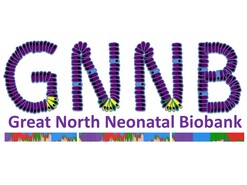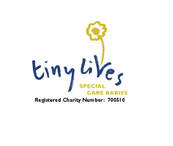The Great North Neonatal Biobank
The Great North Neonatal Biobank (GNNB) collects and stores specimens from newborn babies. This only happens where parents have given permission to do this. We do not collect or store any specimens without written parental consent. The GNNB is led by Dr Janet Berrington (Consultant Neonatal Paediatrician). Currently we have over 40,000 specimens from over 750 premature infants.
Most specimens are either stool (feces) or urine, collected from the nappy, or blood that is left-over after routine blood tests are complete. All these specimens would normally be thrown away. With parents permission, we may also collect small quantities of breast-milk usually less than half a teaspoon that might be leftover inside feeding tubes etc.
Although sick and preterm infants are the focus of our research interests, non-invasive samples from healthy term infants may also be collected including urine, stool, breast milk and saliva. This helps us compare the patterns we see in sick babies with those in healthy babies.
Occasionally, we also collect small samples of gut tissue if they needed to be removed as part of an essential operation to save a baby's life. These samples would normally be stored in a formalin in the pathology lab in the hospital. On occasions, we will ask parents permission to use these specimens before they are stored in the pathology lab. These 'fresh' specimens may contain stem cells. These allow us to test how the intestine works under laboratory conditions. We can grow these cells for a few days and learn more about how the gut functions, without having to study the baby directly i.e. there is no risk to the baby. You can read more about the work of our research team here.
Most specimens are either stool (feces) or urine, collected from the nappy, or blood that is left-over after routine blood tests are complete. All these specimens would normally be thrown away. With parents permission, we may also collect small quantities of breast-milk usually less than half a teaspoon that might be leftover inside feeding tubes etc.
Although sick and preterm infants are the focus of our research interests, non-invasive samples from healthy term infants may also be collected including urine, stool, breast milk and saliva. This helps us compare the patterns we see in sick babies with those in healthy babies.
Occasionally, we also collect small samples of gut tissue if they needed to be removed as part of an essential operation to save a baby's life. These samples would normally be stored in a formalin in the pathology lab in the hospital. On occasions, we will ask parents permission to use these specimens before they are stored in the pathology lab. These 'fresh' specimens may contain stem cells. These allow us to test how the intestine works under laboratory conditions. We can grow these cells for a few days and learn more about how the gut functions, without having to study the baby directly i.e. there is no risk to the baby. You can read more about the work of our research team here.

